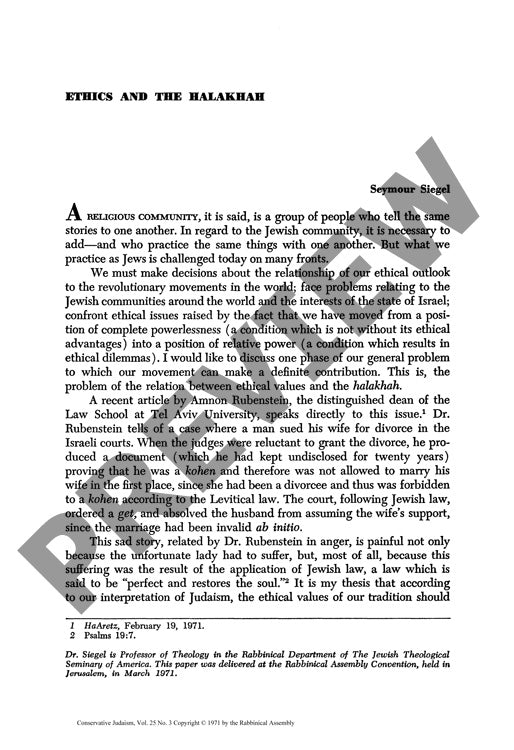Ethics and the Halakhah
Couldn't load pickup availability
Abstract This article examines the relationship between ethical values and halakhah (Jewish law) within Conservative Judaism, arguing that ethical principles should take precedence over specific legal particulars when conflicts arise. Through theological and historical analysis, Siegel contends that the primary foundation of Jewish law lies in the ethical demand to imitate God's qualities of mercy, justice, and compassion, while specific legal formulations represent human responses to divine revelation rather than direct divine commands. The methodology employs both textual analysis of classical sources and examination of contemporary legal cases to demonstrate how ethical considerations historically influenced halakhic development. Key findings include evidence from Talmudic sources showing that rabbis modified laws when adherence would produce ethically problematic outcomes, particularly regarding economic exploitation and social justice. The author applies this framework to contemporary issues including kohen marriage restrictions, divorce proceedings, and mamzerut (illegitimacy), advocating for legal revisions that align with ethical values. The study concludes that strengthening Jewish law's authority requires both revising problematic norms and incorporating ethical demands into mandatory practice, transforming aggadah (ethical teachings) into binding halakhah. This approach represents a Conservative Jewish position that maintains both ritual and ethical components as essential to an organic conception of Judaism while prioritizing moral imperatives in cases of conflict.

More Information
-
Physical Description
-
Publication Information
Published 1971
ISBN
-
Publication Credits
Seymour Siegel

